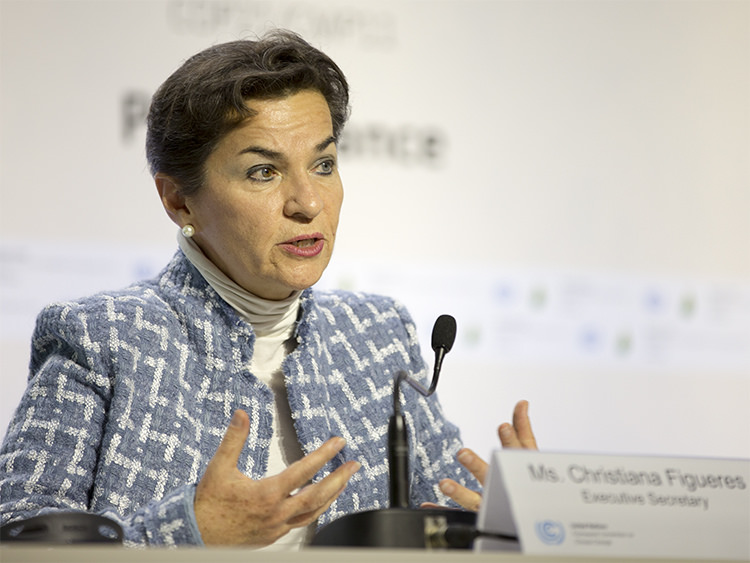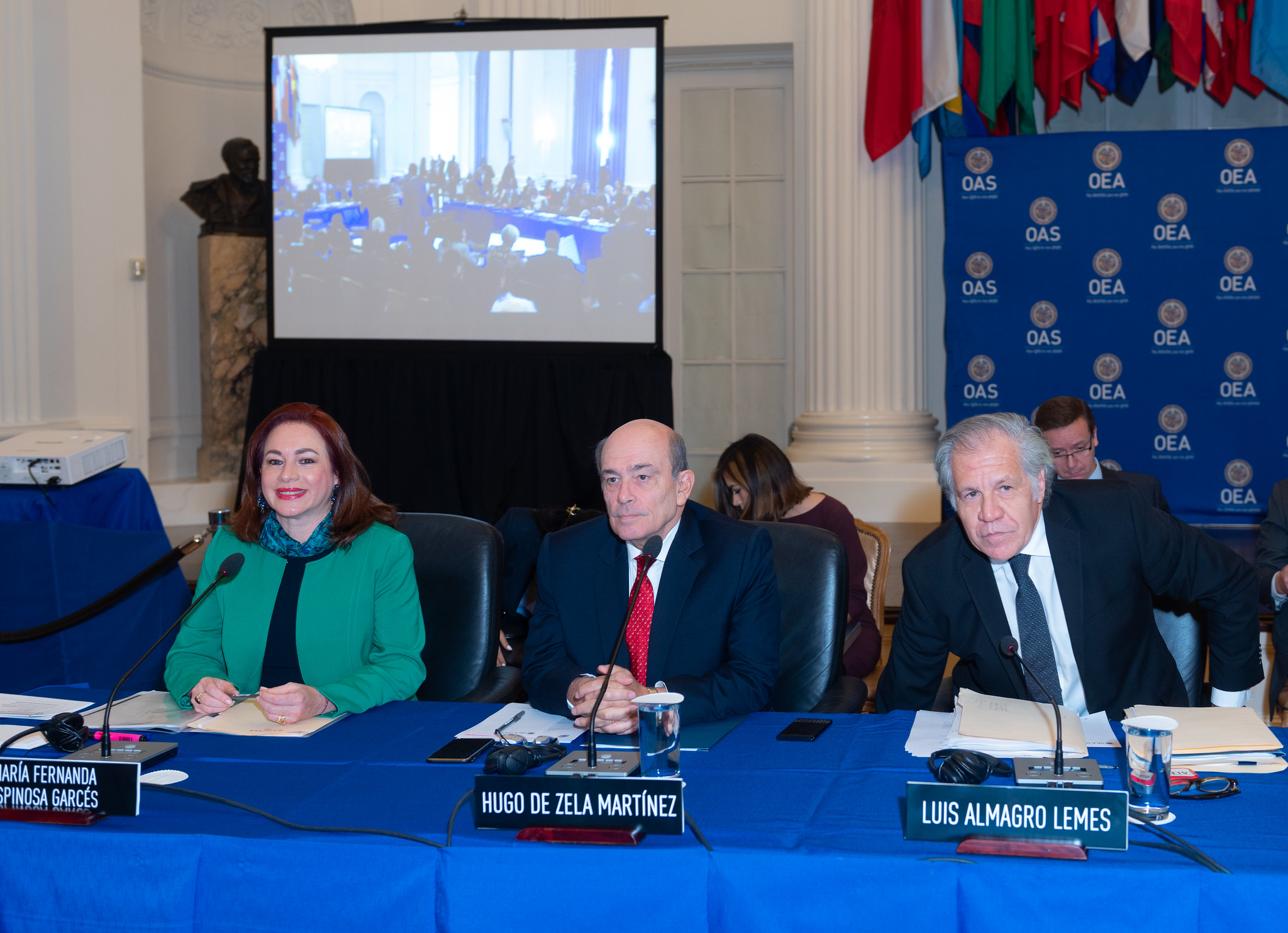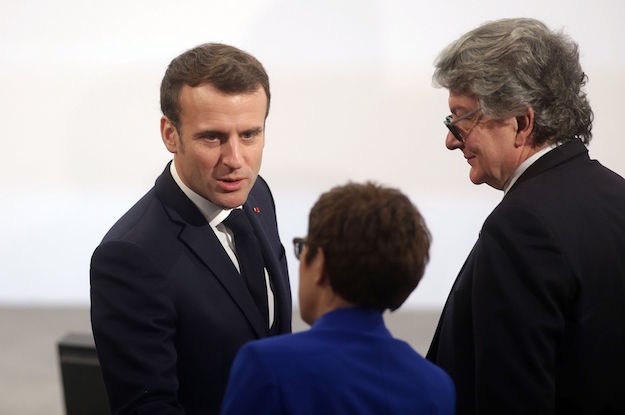Christiana Figueres doesn’t drink coffee. The Costa Rican told AQ that despite hailing from a major exporter of the world’s favorite bean, she bounces around perfectly well without it. After witnessing her formidable leadership as head of the UN Climate Change Secretariat for the past six years, it is hard to disagree.
On July 5, Figueres concluded her tenure as Executive Secretary of the UN Framework Convention on Climate Change, where she helped secure the adoption of the Paris Agreement last December. Just two days later her candidacy for UN Secretary-General was officially launched in San José at an event attended by Costa Rican President Luis Guillermo Solís.
Figueres enters a packed field with 11 other candidates already brandishing their credentials and embarking on intense lobbying. But despite the crowded field, she is a strong contender for the post.
As various crises rock the world, highlighting the often impotent response of the international community, Figueres has proven she can deliver positive results for multilateralism. Her invaluable role in facilitating the adoption of the Paris Agreement by 195 countries last year was one of her crowning achievements.
Moreover, the Paris Agreement, which overlaps considerably with the Sustainable Development Goals, illustrates the growing global consensus around the need to reconcile the pursuit of prosperity with the reality of climate change and a finite planet; a realization that could bolster her candidacy.
Then there’s her management experience. Following Figueres’ appointment to the climate change secretariat in 2010, she successfully took over the running of an organization traumatized by the chaos of the 2009 Copenhagen climate negotiations, which failed to produce a new climate agreement. Figueres demonstrated her resolve, rebuilding the confidence of the organization and its roughly 500 employees through her positive leadership and emphasis on teamwork. She redefined the position with her energy, enthusiasm and dedication to making the case for climate action, as well as her willingness to speak out publicly about the need for greater collective ambition from all countries.
Figueres is held in high regard by hundreds working on climate change in the diplomatic, civil society and business communities due, in part, to her ability to bring different people and sectors together. These leaders may serve as useful allies as she attempts to quickly build support for her candidacy, especially among individuals and organizations who see climate change as a priority for the next Secretary-General.
Figueres’ background and experience on security and peace could simultaneously help and hinder her bid. In the same way that Costa Rica’s robust global green image helped legitimize her term as head of the UNFCCC, her country’s image as a peaceful, neutral nation without a standing army could also pay a dividend in this race.
Conversely, her limited experience on security issues or commanding UN peacekeeping operations compared to her rivals – such as Argentine Foreign Minister Susana Malcorra, who has served both as Ban Ki-moon’s chief-of-staff and as chief of logistics for UN peacekeeping missions – is seen as a weakness, especially with the increasing threat of international terrorism and the ongoing refugee crisis.
Historical precedent could also harm Figueres’ chances. There is an informal consensus that the next Secretary-General should hail from an Eastern European country, which would be a first for the 70-year-old UN.
However, the real struggle will be winning support from the five permanent members of the UN Security Council – the U.S., China, Russia, France and Britain – which hold veto power. She will also need to win over Latin America. Brazil is likely to support Argentina’s Malcorra given both countries’ membership in MERCOSUR. Mexico also appears to favor Malcorra following her successful visit to Mexico this year.
The geopolitics of who secures top UN post will only intensify as the permanent members jockey for their preferred candidate. Russia favors an Eastern European but the ongoing crisis in Ukraine may lead to a stalemate between Russia and the Western permanent members.
While Malcorra has received backing from both the White House and U.S. national security adviser, Susan Rice, Britain is unlikely to support her given the ongoing tensions over the Falkland Islands/Islas Malvinas. With Figueres now in the race, it’s possible that both the U.S. and France could decide to back her given that both President Barack Obama and President François Hollande hope to secure favorable legacies on climate change.
The Security Council will hold its first straw poll to test the viability of candidatures on July 21. Once the Security Council settles on a single candidate, it will make its recommendation to the General Assembly, which will formerly make the appointment. The victor will replace Ban Ki-moon on January 1, 2017. However, given the number of candidates, it is possible that a final selection might not be made until October.
In her vision statement, Figueres described how the Paris Agreement was not an accident, but rather the result of a collective realization that “we would all be losers if we did not find a way to win together.”
The international community agrees that climate change must be tackled to build a more prosperous, resilient and secure future. The increasing threat it poses to global security could ensure that Figueres emerges as one of the favorites.
–
Guy Edwards is research fellow and co-director of the Climate and Development Lab at Brown University.








